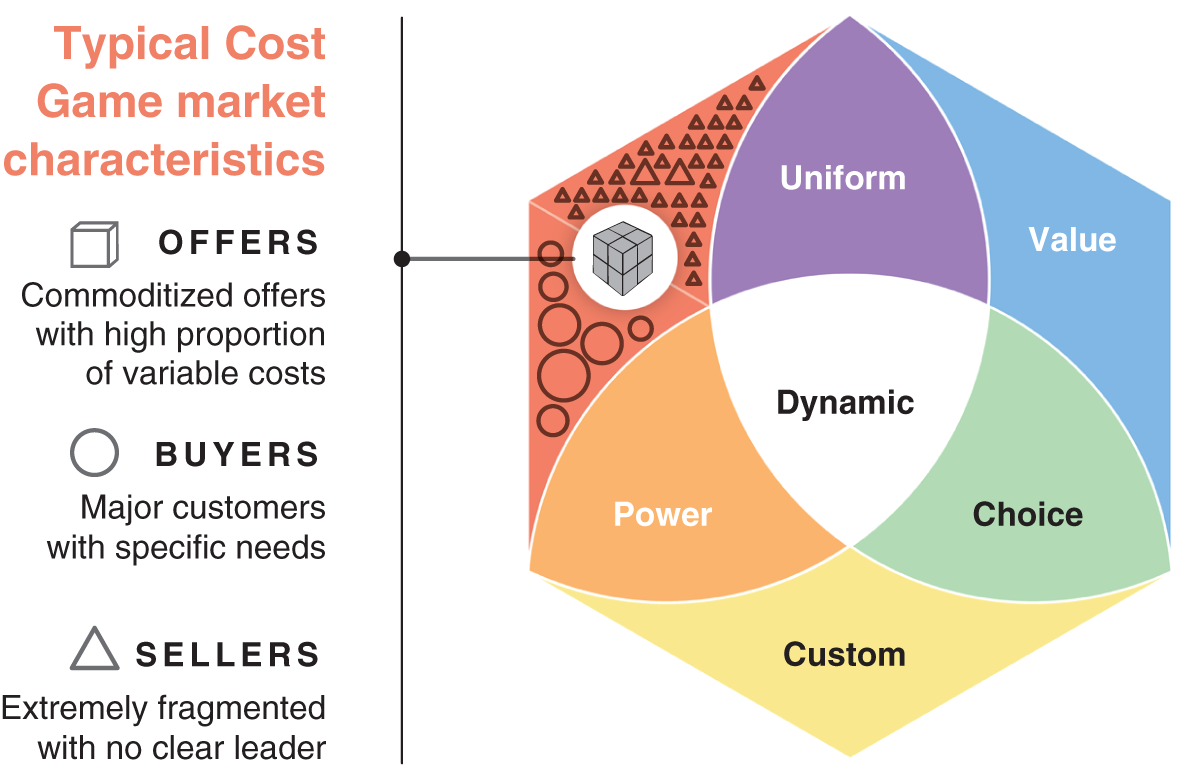CHAPTER 9 The Cost Game: Where Efficiency Reigns

With contributions from Camille Brégé, Drew Donovan, and Shaveen Garg
In some industries, such as construction, the availability of substitutes and the high number of suppliers give customers significant bargaining power. In such markets, suppliers compete primarily on price, with the lowest bid most likely to win the project.
The CEO of Wrightway Contracting believed that it was impossible to win projects without having the lowest bid.
Wrightway specializes in roadwork, which includes building and maintaining local roads and highways, as well as airport runways and logistics hubs.1 Their market fit the typical Cost Game characteristics shown in Figure 9.1. The company's survival depended heavily on effective cost management, which allowed them to offer the lowest bids their CEO considered essential.

FIGURE 9.1 Construction market was ideally suited to the Cost Game
But the CEO also knew that cost reductions have practical limits. If too extreme, they can erode quality and ultimately lead to lower revenue. Where could Wrightway's leadership team find additional levers – beyond cost management – to remain successful?
The company learned that understanding the roles and the impact of pricing levers could help them win more ...
Get Game Changer now with the O’Reilly learning platform.
O’Reilly members experience books, live events, courses curated by job role, and more from O’Reilly and nearly 200 top publishers.

